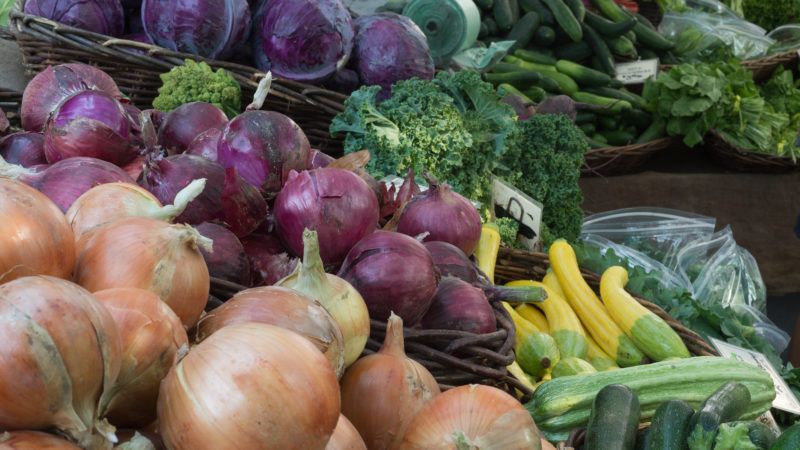Boston Restaurants Want To Sell Groceries. Bureaucrats Say No Way.
The city said that food-packaging regulations stand in the way. That's not true.

When Irene Li started selling select grocery items at Mei Mei, the Boston restaurant she co-founded, she assumed she was providing a public service.
"When I drive to work every day, I pass by a Trader Joe's that almost every single time I've gone by has at least 20 people standing in line outside," Li says, noting the health implications of shopping in crowded stores amid the COVID-19 outbreak.
Boston bureaucrats disagreed. An inspector with the Health Division of Boston Inspectional Services on Monday ordered Li to immediately desist, because she lacks the proper license to sell groceries.
"We were essentially just told that we don't have the correct permit," says Li. "So none of the sales are permitted."
City officials did not provide her—or any other Boston restaurateurs—a way forward for obtaining the proper permissions.
"Food services and food retail are two different licenses that we issue," Lisa Timberlake, a spokesperson for Boston Inspectional Services, tells Reason. "Restaurants have food service licenses, which require submission of new plans and procedures if the business is going to deviate from the original plans. It's not as simple as lifting the zoning restrictions on takeout that we've done. It's more complicated than that."
Is it?
Over the course of the same conversation, Timberlake pivoted from the city's original justification for ordering Li to stop selling groceries (lack of the proper permit) and laid the responsibility on grocery packaging regulations.
"The City of Boston as well as businesses, we're required to comply with state laws regarding the change in plans, they must adhere to the federal laws regarding packaging of raw animal products or what have you, so the authority to lift or soften any regulations would require compliance with the state and federal laws," Timberlake says. "That's above us."
But that's not true, according to Nick Zaiac, a resident fellow in transportation and infrastructure at the R Street Institute, a Washington-based think tank.
"Primarily, this is a part of local zoning code," Zaiac says. Restaurants selling groceries "is certainly not something that is barred by the state. [The city's] hands are not tied."
Consider the situation in Los Angeles, which I wrote about a couple of weeks back. Health inspectors there temporarily shuttered a slew of restaurants-turned-grocery stores, citing their lack of grocery licenses. Officials eventually backtracked, allowing restaurant establishments to sell grocery items if offered for takeout and delivery.
That move did not require any permission from the state of California.
Meanwhile, in Texas, Gov. Greg Abbott (R) issued official guidance "allowing restaurants to sell bulk retail products from restaurant supply chain distributors directly to consumers provided that such foods are in their original condition, packaging, or presented as received by the restaurant."
Compare that with Boston's actions. "The regs on this particular function, they haven't softened," says city spokesperson Timberlake. "In order to sell raw meat or raw animal products, the USDA [United States Department of Agriculture] actually requires labeling including safe food handling instructions."
But if Texas didn't need special permission from the federal government to let restaurants sell pre-packaged food, one wonders why Boston would need approval from the USDA to do the same thing. Restaurant owners like Li were attempting to sell grocery items that had already been packaged and labeled by their various distributors. What's more, Timberlake noted that Boston restaurants would likely not be permitted to sell things like toilet paper and cleaning supplies, yet clearly neither of those items falls under any USDA packaging requirements.
In short, this is a licensing issue, not a question of federal or state oversight, and it could be easily resolved in favor of both public health and struggling restaurants. As Li mentioned, restaurants-turned-grocery stores offer a number of genuine public health benefits. They are less crowded with shoppers and are often well-stocked with essential items. That's a win-win.
Licensing laws are often put in place in the name of protecting consumers. But it's clear that consumer safety is not at the foreground of what's happening in Boston.


Show Comments (27)